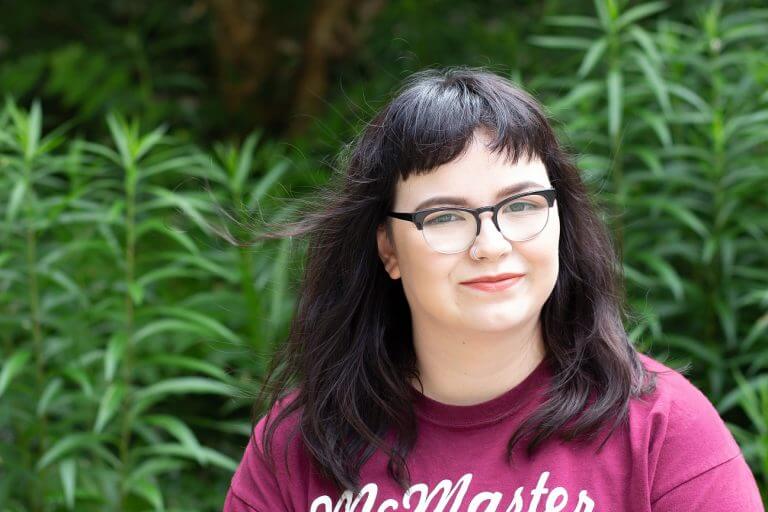By: Tory Dockree, Tabatha May, and Emily Meilleur-Rivers
Independent research can be tricky, especially while you are beginning to learn how to navigate the research process. However, there are tons of tips and tricks that can help to make this entire experience more bearable. As a result, we thought that we would share some of these strategies.
A research question is the question that guides your research. A good research question is one that is:
- Specific. It’s essential that your question specifies exactly what you are researching. It’s not enough to, for example, ask what the effects of divorce are. Your professors will expect you to indicate who or what you are talking about, so it’s up to you to figure out whether you want to research the effects of parental divorce on children under 10 in the US, or the effects of divorce on middle-aged mothers in Canada. Having a more narrow research focus will also help you with managing your research and readings!
- Clear. Complex wording is never the way to go with these, especially if your research question is going to be marked by your professor (this is sometimes the case in research proposals or annotated bibliographies). Your research question must be clear enough that your reader knows what you are asking without any additional explanation.
- Complex. Your research question has to be worth researching, rather than a yes or no question. Your research question should ideally require an analysis of thoughts and ideas related to your topic.
Databases
Research databases are essentially hubs where a large collection of academic research on a variety of different topics are stored. As a McMaster student, you have access to many different databases through the university library. In order to access these resources you simply have to go to the library website under databases and select a database to search through. We recommend beginning with a more general database like JSTOR or Google Scholar before pursuing more subject specific resources. Once you’ve opened the database you simply sort according to key words and phrases in order to find scholarly articles that are relevant to your research. Sometimes it can be difficult to figure out the proper words and phrases that will get you the search results that you are looking for, so feel free to mess around and reword the categories that you are searching with.
Primary vs. secondary sources
Primary sources are materials that are eyewitness accounts or as close to the original source as possible.
(American University)
Secondary sources are interpretations or analyses based on primary sources.
(American University)
You will often use both types of sources in your academic writing; however, it is important to include the primary source if you are referring to several secondary sources that discuss it. For example, you should not write a paper where you reference 4 different interpretations of Kant’s Toward Perpetual Peace without actually referencing Kant himself.
General Rules
There are also some general rules that you are going to want to keep in mind when selecting which articles to use:
- All articles should be peered reviewed except in extenuating circumstances.
- Peer-reviewed basically means that the article you are referencing has been verified by more people than simply the author themselves, therefore the research is more trustworthy.
- An article will always reference the fact that it is peer-reviewed and you can place this search restriction in most databases.
- There are exceptions to this rule; however, they usually happen when using non-academic sources like news articles.
- The research should be recently published unless it is a classic piece of formative research. This is a good rule of thumb simply because there could be confounding information that renders older articles invalid which you did not find in your initial search. Research is always building on itself so the newer the better.
Help!
If you are having trouble starting your research or navigating the databases you can always swing by the library and talk to a librarian. It is important to remember that librarians are trained researchers who are more than happy to help you navigate this tricky process.
Can’t make it to campus? Make use of the Ask a Librarian instant messaging system.
A thesis statement is a claim that tells the reader what to expect of your paper. It is just one sentence, usually located at the end of your introduction. The rest of your paper should be a collection of evidence to support your thesis statement. A thesis should be clear, concise, and specific. For example, “cats are adorable” is not a good thesis statement. Instead, something like, “The unique independence and desire for affection exhibited by cats make them the optimal pets for elderly individuals living alone.”
The expectations surrounding how you write your paper will vary depending on your program. For example, science papers are generally more concise, whereas social sciences and humanities papers may be longer and more descriptive. Generally, a good place to begin is with an outline. An outline may include an introduction, a topic overview, findings/evidence, sometimes a discussion, and a conclusion. From there, you might also organize where you will discuss some of the research that you’ve gathered.
Now you should have a clear direction and it’s time to start writing! Remember, it’s okay if you don’t end up sticking to your original outline. The key is that you stick to your thesis. When you write a research paper, always ask yourself “what does this have to do with my thesis?” It’s important that everything ties back. Ultimately, you may find that your thesis is inadequate and that your research has led you in a different direction. That’s totally fine! Remember, editing and revising are a huge aspect of writing and it’s totally normal to change directions. Which leads us to our next step.
Your first draft should never be your only draft. When you read over your paper the first time, you should look for a few key things:
- Overly wordy and confusing sentences
- Unnecessary sentences that do not tie back to your thesis
- Unclearly communicated thoughts and ideas
- spelling mistakes
- incorrect sentence structure
- grammatical errors
If you still need help, connect with a trained peer at the Writing Centre.
Do not forget to properly cite! If it’s not common knowledge, it needs a citation. Refer to your assignment guidelines or course description to see which citation style your professor expects. Refer to Owl Purdue for comprehensive guides on proper citation styles.
About Tory, Tabatha and Emily

Tory
I’m going into my third year of Arts & Science with a combination in Philosophy.

Tabatha
I’m going into my fourth year of Social Psychology with a minor in Sociology.

Emily
I just finished my undergrad in English and Cultural Studies with a Minor in Women’s Studies. In September, I am sticking around at Mac to start my Master’s in Cultural Studies and Critical Theory.